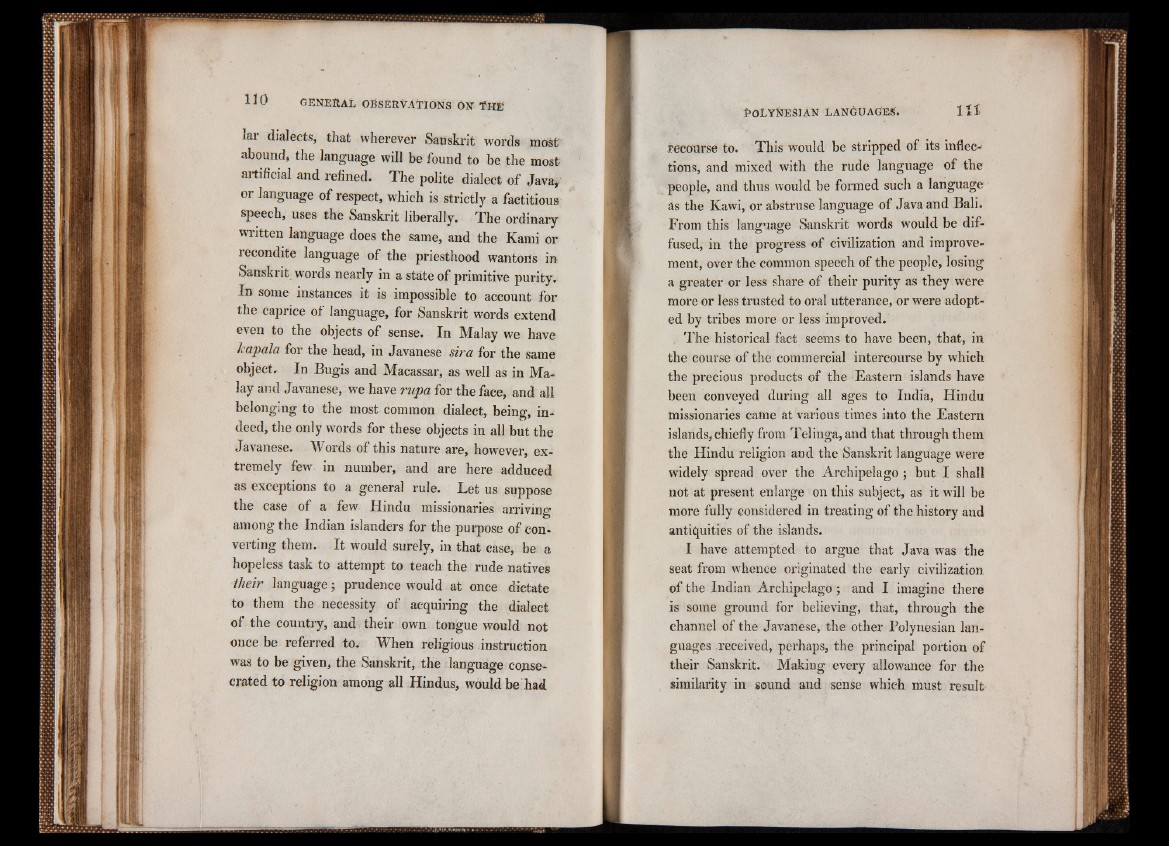
lai dialects, that wherever Sanskrit words most
abound, the language will be found to be the most
artificial and refined. The polite dialect of Java,
or language of respect, which is strictly a factitious
speech, uses the Sanskrit liberally. The ordinary
written language does the same, and the Kami or
recondite language of the priesthood w'antons in
Sanskrit words nearly in a state of primitive purity.
In some instances it is impossible to account for
the caprice of language, for Sanskrit words extend
even to the objects of sense. In Malay we have
kapala for the head, in Javanese sir a for the same
object. In Bugis and Macassar, as well as in Malay
and Javanese, we have rupa for the face, and all
belonging to the most common dialect, being, indeed,
the only words for these objects in all but the
Javanese. Words of this nature are, however, extremely
few in number, and are here adduced
as exceptions to a general rule. Let us suppose
the case of a few Hindu missionaries arriving
among the Indian islanders for the purpose of converting
them. It would surely, in that case, be a
hopeless task to attempt to teach the rude natives
their language; prudence would at once dictate
to them the necessity of acquiring the dialect
of the country, and their own tongue would not
once be referred to. When religious instruction
was to be given, the Sanskrit, the language consecrated
to religion among all Hindus, would be had
recourse to. This would be stripped of its inflec-'
tions, and mixed with the rude language of the
people, and thus would be formed such a language
as the Kawi, or abstruse language of Java and Bali,
From this language Sanskrit words would be diffused,
in the progress of civilization and improvement,
over the common speech of the people, losing
a greater or less share of their purity as they were
more or less trusted to oral utterance, or were adopted
by tribes more or less improved.
The historical fact seems to have been, that, in
the course of the commercial intercourse by which
the precious products of the Eastern islands have
been conveyed during all ages to India, Hindu
missionaries came at various times into the Eastern
islands, chiefly from Telinga,and that through them
the Hindu religion and the Sanskrit language were
widely spread over the Archipelago ; but I shall
not at present enlarge on this subject, as it will be
more fully considered in treating of the history and
antiquities of the islands.
I have attempted to argue that Java was the
seat from whence originated the early civilization
of the Indian Archipelago ; and I imagine there
is some ground for believing, that, through the
channel of the Javanese, the other Polynesian languages
received, perhaps, the principal portion of
their Sanskrit. Making every allowance for the
similarity in sound and sense which must result